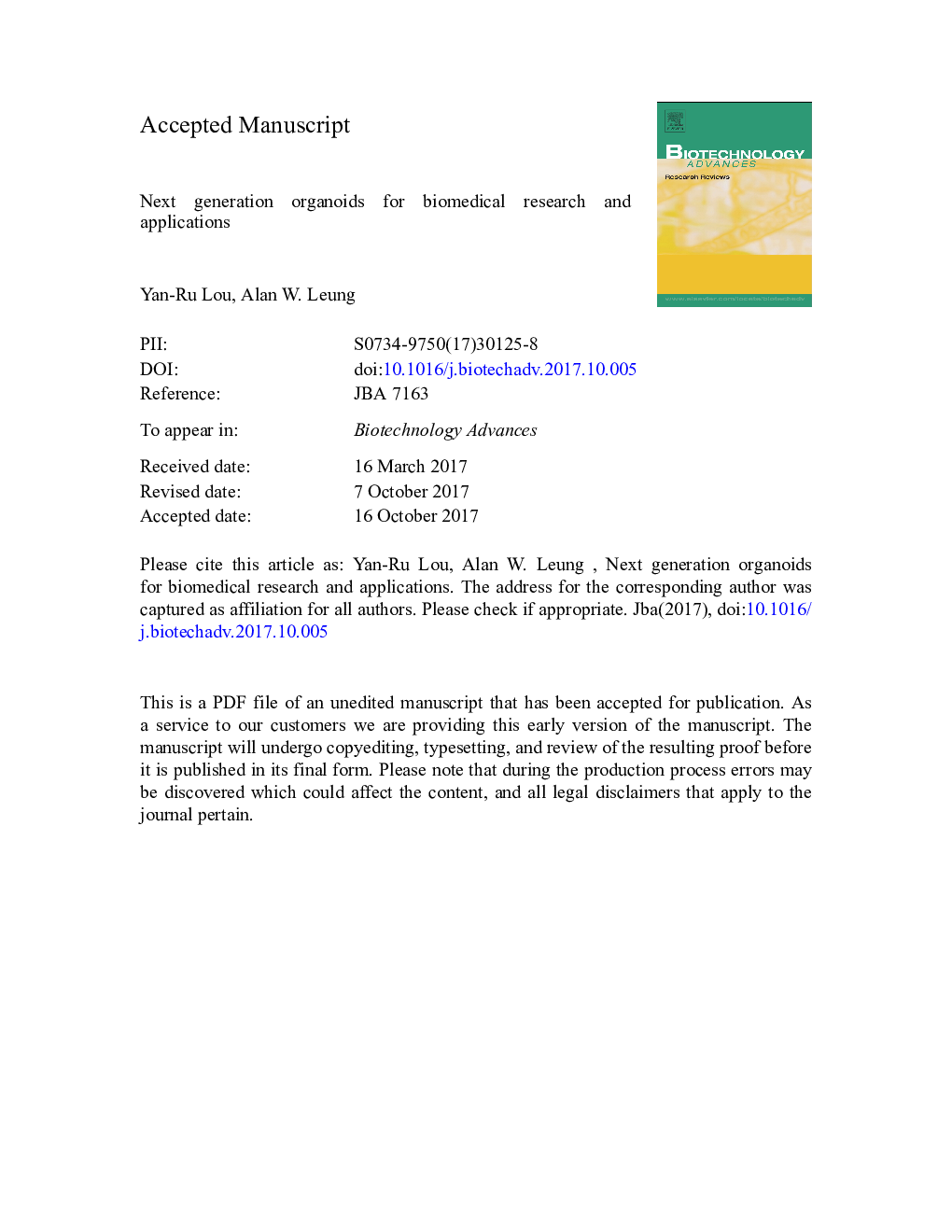| Article ID | Journal | Published Year | Pages | File Type |
|---|---|---|---|---|
| 6486675 | Biotechnology Advances | 2018 | 50 Pages |
Abstract
Organoids are in vitro cultures of miniature fetal or adult organ-like structures. Their potentials for use in tissue and organ replacement, disease modeling, toxicology studies, and drug discovery are tremendous. Currently, major challenges facing human organoid technology include (i) improving the range of cellular heterogeneity for a particular organoid system, (ii) mimicking the native micro- and matrix-environment encountered by cells within organoids, and (iii) developing robust protocols for the in vitro maturation of organoids that remain mostly fetal-like in cultures. To tackle these challenges, we advocate the principle of reverse engineering that replicates the inner workings of in vivo systems with the goal of achieving functionality and maturation of the resulting organoid structures with the input of minimal intrinsic (cellular) and environmental (matrix and niche) constituents. Here, we present an overview of organoid technology development in several systems that employ cell materials derived from fetal and adult tissues and pluripotent stem cell cultures. We focus on key studies that exploit the self-organizing property of embryonic progenitors and the role of designer matrices and cell-free scaffolds in assisting organoid formation. We further explore the relationship between adult stem cells, niche factors, and other current developments that aim to enhance robust organoid maturation. From these works, we propose a standardized pipeline for the development of future protocols that would help generate more physiologically relevant human organoids for various biomedical applications.
Keywords
Related Topics
Physical Sciences and Engineering
Chemical Engineering
Bioengineering
Authors
Yan-Ru Lou, Alan W. Leung,
